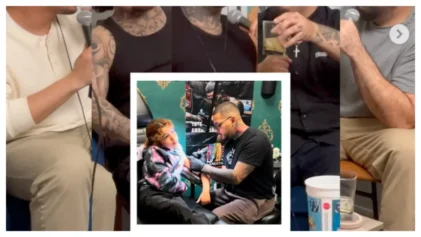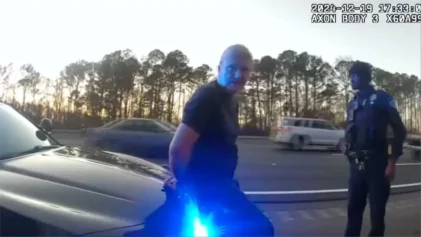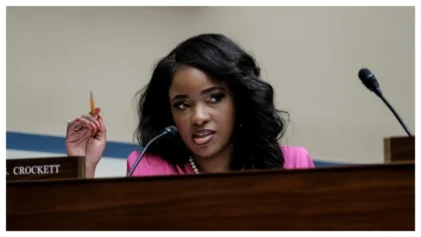A woman who sat on the jury that sent an Alabama man to death row 25 years ago is now calling for a new trial due to evidence of potential legal misconduct, saying her role in the defendant’s 1998 murder conviction “keeps me awake at night.”
Monique Hicks, of Prattsville, Alabama, sat on the jury that found Toforest Johnson guilty in the murder of Jefferson County Deputy Sheriff William G. “Bill” Hardy, who was gunned down in the parking lot of a Birmingham hotel in the summer of 1995 while working an off-duty job as a security guard.
Johnson, who is Black, was put on trial three years later, found guilty and sentenced to death based on questionable testimony by a witness who was paid thousands of dollars to testify for the prosecution.
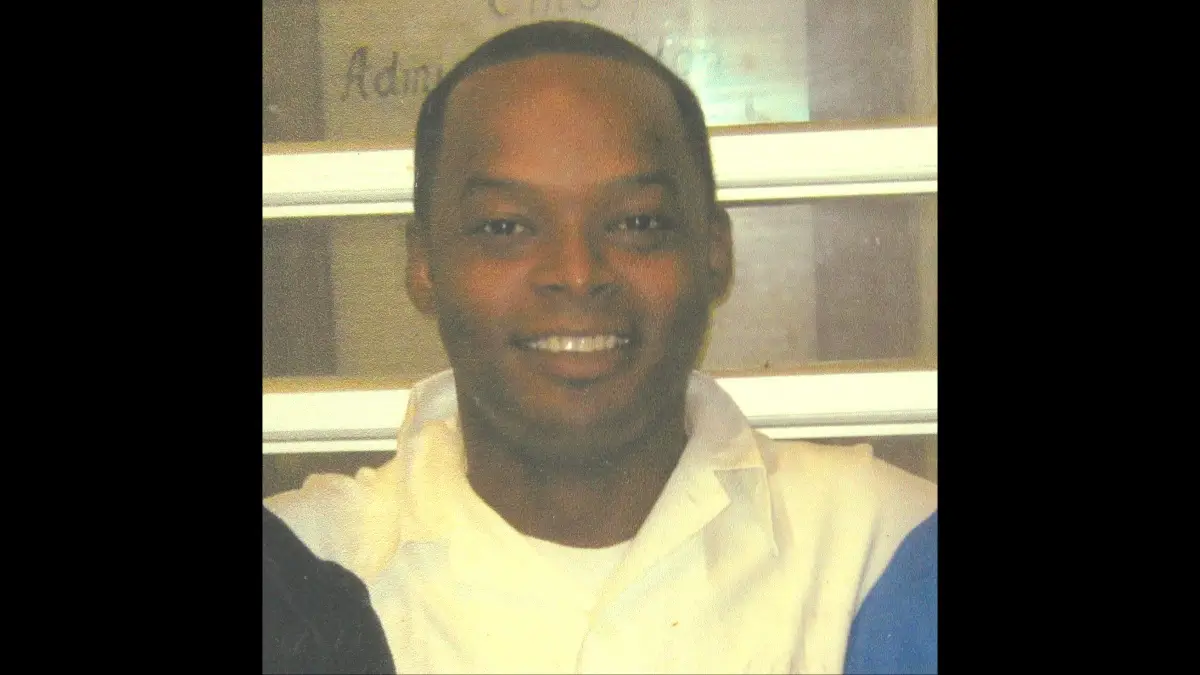
Due to newly uncovered evidence, Hicks now says she regrets her role in Johnson’s conviction, proclaiming his innocence and even seeking forgiveness from his family.
“I have asked the Lord to forgive me for my part in inflicting so much suffering,” she wrote in a guest opinion column that was published April 22 on AI.com. “I pray that Mr. Johnson and his family can forgive me too. In the meantime, I will continue to use my voice to plead for justice.”
In the opinion column, Hicks expresses deep regret, asking, “What responsibility do I bear? My role in the wrongful conviction of an innocent man keeps me awake at night.”
The effort to free Johnson has received substantial backing from celebrity activist Kim Kardashian as well as several prominent legal figures, including the National Innocence Project, which recently filed two amicus briefs supporting a new trial for Johnson — one in the U.S. Supreme Court and another in Alabama’s Jefferson County Circuit Court.
As of May 2024, no execution date has been set for Johnson, who has maintained his innocence since he became a suspect in the officer’s murder nearly three decades ago, when he was 25 and in the prime of his life.
At the time of the killing, on July 19, 1995, five suspects, in addition to Johnson, were eventually rounded up in connection with the fatal shooting, but only Johnson was convicted despite no physical evidence and the lack of eyewitnesses who could place him at the scene of the crime.
Last year, Jefferson County District Attorney Danny Carr conducted a nine-month review of the evidence and concluded that “the interests of justice” demanded a new trial for Johnson, who is now 50 years old.
“Leadership is not about being right but about making things right,” he said during a faith rally in support of Johnson in December 2023.
However, state Attorney General Steve Marshall has dismissed this investigation, referring to it as Carr’s “subjective opinion.”
But an appeal filed by Johnson’s lawyers in Jefferson County Circuit Court argues that the investigation cannot be summarily ignored.
Despite the new evidence, Marshall keeps going to court to block the convicted man from getting a new trial and is pushing for Johnson to be put to death sooner rather than later.
The main snag in the state’s case involves a witness named Violet Ellison, who testified in the 1998 trial that she overheard Johnson confess to the officer’s murder during a phone call she had eavesdropped on as Johnson spoke from jail.
Ellison’s testimony was the crucial linchpin of the case that ultimately won the conviction against Johnson, however, in 2015 — 17 years after the trial — the state revealed that it secretly paid $5,000 to Ellison for her testimony.
Additionally, Ellison has a questionable history as a witness because her testimony as a witness for the state in five other criminal cases had resulted in acquittals and dismissals.
Her involvement in Johnson’s case prompted three jurors — including Hicks — to demand a new trial, stating they would not have convicted him if they had known about the payment to Ellison and her credibility issues.
Other new evidence has also emerged that points to Johnson’s innocence.
A new podcast, “Earwitness,” has brought renewed attention to the case and uncovered new information that has the potential to free Johnson after decades behind bars.
In 2023, the podcast tracked down Ellison’s grandchildren, who revealed they didn’t trust her while describing her as willing to do “anything for a dollar.”
According to nearly a dozen witnesses, Johnson and his disabled friend Ardragus Ford were hanging out together at Tee’s Place, a downtown Birmingham nightclub, at the time when Deputy Hardy was killed four miles away.
But, days after the slaying, a troubled 15-year-old girl named Yolanda Chambers, who, joined later by a girlfriend, was picked up by Johnson and Ford after the men left the nightclub, fingered the two men to authorities following the sheriff’s department offering of a reward.
Although Chambers would change her story many times, she initially told investigators that the men confessed to the girls that Johnson had “smoked a cop” earlier that evening. Johnson and Ford became permanent suspects after Chambers’ first of many interviews with investigators.
During the trial, in which Chambers would prove to be an inconsistent witness, police all but admitted they were unsure about who actually killed Deputy Hardy as they lacked any physical evidence or eyewitness accounts that directly implicated Johnson.
At trial, prosecutors also presented five conflicting theories about the fatal shooting in an effort to explain the circumstances behind Hardy’s death but stopped short of drawing any conclusions, suggesting there was no smoking gun.
The lead detective in the case initially testified that Ardragus Ford and another man, Omar Berry, were responsible for killing Hardy. However, prosecutors changed their theory multiple times over three years, leading to Johnson being the only one convicted and sentenced to death.
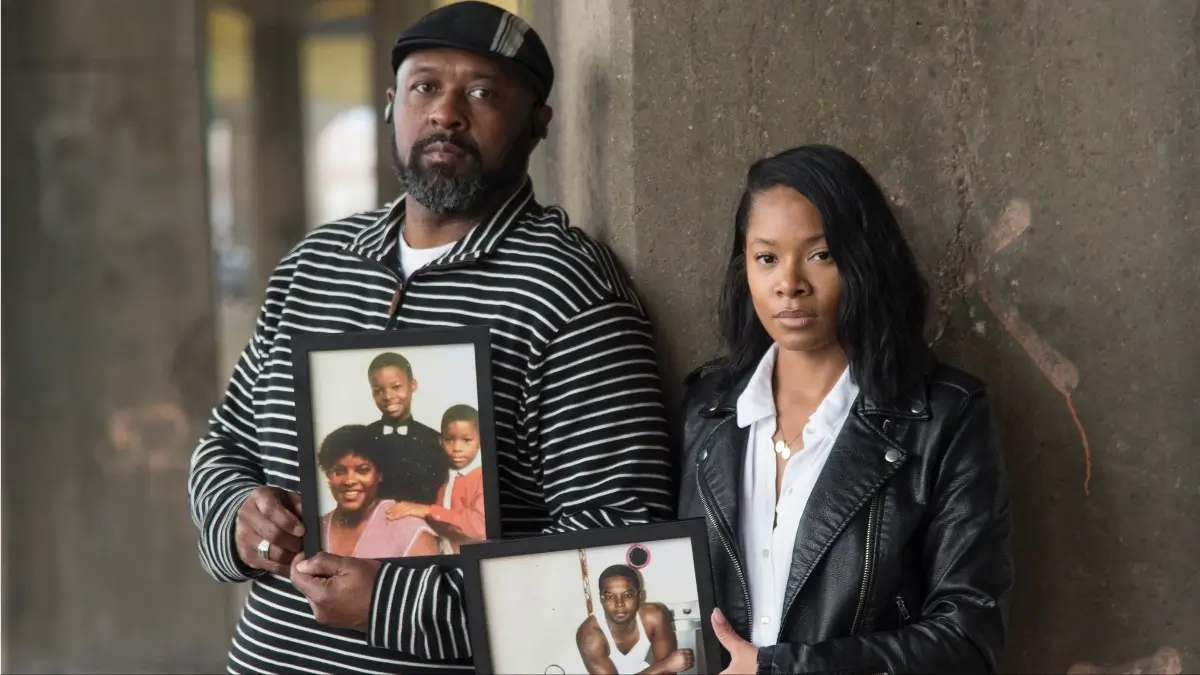
Hicks said she changed her mind about Johnson’s guilt more than two decades after she helped send him to death row for the crime.
“After the trial, I went home and returned to my daily life,” she explained. “I did not hear about Toforest Johnson again for more than two decades. But then I started seeing his case on the news.”
It was around this time, in 2023, that public officials in Alabama began calling for a new trial for Johnson, which received widespread support from the likes of Kardashian, who in January shared several infographics concerning Johnson’s criminal case with her 364 million followers on Instagram.
In one post, Kardashian wrote that Johnson “spent his 26th Christmas in prison for a crime he did not commit” and included a link to a petition to help the man.
Support for Johnson has also emerged in many unlikely places, namely from former state Attorney General Bill Baxley and Birmingham District Attorney Jeff Wallace, who prosecuted Johnson for Hardy’s murder back in 1998.
Previously, Wallace testified under oath in 2014 that he didn’t “think the State’s case was very strong because it depended on the testimony of Violet Ellison.”
Baxley — who fought to reinstate the death penalty as Alabama’s attorney general in the 1970s — also said he firmly believes that Johnson is innocent, describing him as being “trapped” in the legal system.
“Johnson’s murder trial was so deeply flawed, the evidence presented against him so thin, that no Alabamian should tolerate his incarceration, let alone his execution,” Baxley wrote for the Washington Post.
The call to throw out the conviction has also received support from two former Alabama governors and the state’s former Republican Chief Justice.
A website named after Johnson has also been established, highlighting a number of legal advocates and lawmakers who have gotten behind the effort to free him.
With momentum building behind Johnson, Hicks said she began grappling with the impact of the jury’s decision on his fate, leading to deep personal reflection, saying she could no longer ignore what many others were now claiming about Johnson’s innocence.
Drawing on her Christian faith, Hicks said she felt moved to express her new outlook on the case in the news column she wrote, calling for a new trial for Johnson while emphasizing the need for a fair and thorough examination of all the evidence.
“Twenty-five years ago, I sat in the jury box in a courtroom in Birmingham and voted for a man to die. The prosecutor, Jeff Wallace, asked me and my fellow jurors to convict the defendant, Toforest Johnson, of murder. Then he asked us to sentence Mr. Johnson to death. We did both.”
After Wallace, of all people, called for a new trial, Hicks said she struggled to come to terms with her own decision to convict Johnson, compelling her to speak out.
“I remember how young Mr. Johnson looked. And I distinctly remember that when the verdict was read, I could hear loud wailing in the audience. Now being a mother myself, I can only imagine that tremendous grief must have come from Mr. Johnson’s mother. At the time, I was comforted by my belief that my vote to convict Mr. Johnson and sentence him to death was right. Now my tears flow, too.”
